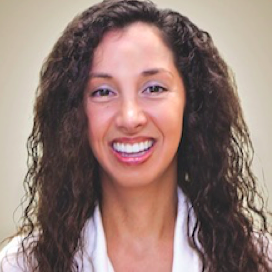
Professor Noelle Hurd, a distinguished psychologist with multiple degrees, focuses on adolescent development among marginalized youth in her research here at the University of Virginia. She teaches Intro to Clinical Psychology as well as Risk and Resilience among Marginalised Adolescence.
Recently, I had the chance to ask Professor Hurd about important issues that concern student’s mental health.
We began with a broad issue that concern mental health: our physical health. Hurd immediately cited sleep as a key part of maintaining a healthy and balanced lifestyle.
“I do not think we do a good enough job as a field of making sure people understand that we have solid research evidence about the importance of sleep,” Hurd said, “Getting enough sleep, including things like getting uninterrupted sleep can be harder to do in a lot of the settings you find yourselves in, like living with multiple roommates, and people having lots of different schedules.”
This particular conversation topic brought up the issue of technology and how it can negatively influence our sleep schedules, as it can affect our REM cycles that we require to feel well rested.
“We have a reliance on technology and always having computers and phones available, there is some pretty good science around just needing to unplug, and doing this a good amount of time before we go to sleep will help us to have more restful sleep,” Hurd said, “Also, not keeping our cell phone next to our bed and waking up everytime it vibrates or rings [is recommended].”
Next, we discussed the typical nature of a UVA student. Generally, UVA students were top of their high school graduating classes, and as a result, many have a mentality that achievement is non-negotiable.
“My impression with UVA undergraduates is that you are all very busy, overachievers and doing so many different things, so the first thing that normally goes is self care, so that’s something that we think about in terms of physical well being, but I also think of that in the context of mental well being,” Hurd said.
The majority of full time students at UVA are enrolled in 15 credits and can be members of numerous clubs. The focus on having a well-rounded resume sometimes comes to the cost to the health of students at the university.
In addition, UVA is known for its “Work Hard, Play Hard” mindset, dubbed by Playboy in 2012 as “The Top Party School in America.” With this reputation can come an unhealthy focus on excess.
“I would have concern to the extent that students who, even if they are engaging with their studies really hard during the week, then on the weekend it’s really extreme partying. I just think the adage around ‘Everything in moderation‘ has some value to it,” Hurd said, “Whether it’s studying or partying, the idea of doing either of those things in a very extreme manner raises the possibility of increased risk.”
At 18 years old and up, 25% of the population will have a mental illness in any given year. In addition, the age of onset for depression usually occurs in one’s mid-twenties, as does that for schizophrenia and anxiety disorders. This manifestation process is often sped up by increased levels of stress in one’s life.
“We are in a developmental space where we just see in the general population, this time period from the late teens into the early 20s, increased incidents of a variety of mental illness, and so knowing that that developmental risk intersects with transitions and challenges, especially the transition to college where you may have had had a really great supportive network that you might be leaving,” said Hurd.
To prevent this, Hurd recommends not only sleep, but also a good diet, exercise, and getting support by connecting with others. Isolating oneself is a situation that Hurd feels can invite problems.
“Students that really isolate themselves or are isolated because other people are not very welcoming [or] students that aren’t engaging in good self care can turn to really heavy substance use, which can be very detrimental for both physical and mental health,” Hurd said, “In some ways there are a lot of opportunities to engage with substances and so people may start doing that recreationally or as part of a social setting, but that can also very easily provide opportunities for individuals to develop addictions and more serious reliance on those things.”
Many students believe that CAPS may not be necessary for them if they are part of the “worried well” category. This is usually when one finds in recent weeks that they haven’t been feeling themselves and that they are more down than usual. These particular students do not have a defined mental illness, but they recognize that something is off with them. Addressing the issue before it grows to become a problem is a prevention tactic that many clinical psychologists support.
Hurd encourages the idea that CAPS should be thought of as a resource for anyone, no matter how serious they think their problems are.
“Being open to accessing the mental health services that are available, being willing to go in for a screening, the idea that students would look for help sooner and that they would understand that with tuition they can take advantage of it,” Hurd advised.
In addition, many people come from backgrounds where seeking out help isn’t the norm, which can make it harder for them to make the step towards it when they need it.
“Cultural framework affects vast degrees to which they see it as a viable outlet and resource for them,” Hurd said, “I think one of the ways to make it more accessible than the outreach, making connections, having a diverse representation in terms of the staff.”
With recent racially motivated incidents on campus in recent months, Hurd encourages students to have an open mind to all humans and what problems they may be battling under the surface.
“We have some students here that are dealing with really challenging circumstances like an illness themselves or a family member that’s very ill, or they may have a lot of issues in terms of financial need, acts of bias on campus, way in which some individuals are trying to make others feel really unwelcome here, so I think those are things that we need to attend to as well, because they all relate to mental health,” Hurd commented.
Environmental triggers can be just as big a problem as pre-existing conditions. It does not always have to be one big event, like death, that can affect them. Rather, people underestimate how small things everyday, such as problems with your roommate, can be equally as stressful to your system.
To solve this, Hurd believes we need to come together as a community and fight the prejudices that have appeared more prominently in recent months. By doing this, we can help reduce the environmental factors that contribute to mental illness.
“Breaking down barriers to make sure there is more access to support for these things will help us come together better as a community. We don’t want to be doing things that would make people feel worse, trying to create hierarchies or make people feel bad,” Hurd said, “The more that we can come together, people that really care about it can speak up; the more initiatives, the better we all are — we’re stronger when we’re all doing better as a group.”
By maintaining good self-care, seeking out help when one needs it, and by coming together as a community, Hurd believes we can reduce mental illness numbers.
If you or any friends want to seek out help or a screening, CAPS can be contacted at 434-243-5150 during the day and at 434-297-4261 for night and weekend crisis assistance.
















